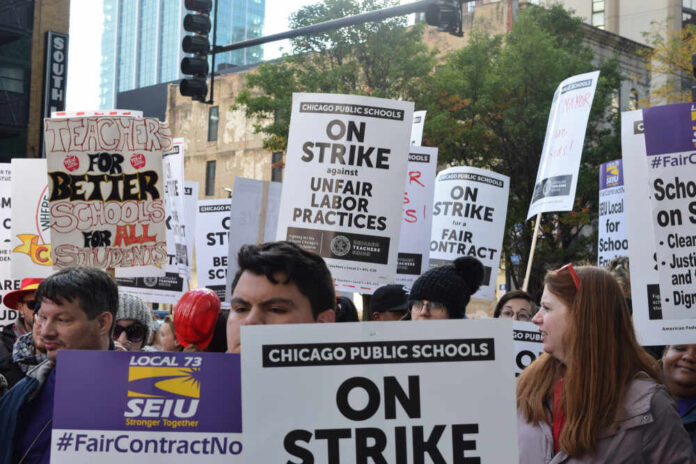
Stacy Davis Gates, the newly minted President of the Chicago Teachers Union (CTU), is caught in a swirl of controversy after it was revealed her son attends a private Catholic high school. This would not be particularly newsworthy except that Davis Gates has been an outspoken critic of school choice — policies that allow parents to send their children to schools other than the ones to which they are zoned, including private institutions.
In the recent past, Davis Gates boldly stated that school choice was “actually the choice of racists,” adding, “It was created to avoid integrating schools with Black children.” She also claimed private schools are “segregation academies supported by taxpayer funds.” But what does it say when Davis Gates herself selects a private school for her son?
In a letter sent to union educators, Davis Gates explained her decision by highlighting public schools’ lack of resources and opportunities, especially on Chicago’s South and West Sides. She spoke of “compounded racism and redlining” and the “inequities” that remain. Indeed, public schools in many areas suffer from underinvestment, but what is perplexing is her opposition to giving other families the same option she exercised.
Stacy Davis Gates is a hypocrite. pic.twitter.com/LadCc9oo3P
— Corey A. DeAngelis, school choice evangelist (@DeAngelisCorey) September 8, 2023
Moreover, Davis Gates has always said her legitimacy as a union leader was anchored by her children attending public schools. In her own words, her children being in public education helps to “legitimize” her position. Yet, according to her, she had no qualms about letting her son join a private institution for his specific needs — soccer being a prime consideration.
It’s worth noting that Davis Gates continues to fight against policies that could allocate funds to private institutions through voucher programs. In a statement on the union’s website, she declared, “We will continue to oppose siphoning public school resources off to private institutions.” But isn’t that precisely what she has done by enrolling her son in a private school?
Chicago Teachers Union president Stacy Davis Gates (2022): "I'm also a mother. My children go to Chicago Public Schools. These are the things that legitimize my space within the coalition."
She now sends her son to a private school. pic.twitter.com/kEHeR70Ajv
— Corey A. DeAngelis, school choice evangelist (@DeAngelisCorey) September 8, 2023
What’s at stake here is not just the perceived hypocrisy of a union leader but the future of America’s educational system. If one of the champions of public schools opts for private education when it benefits her family while simultaneously fighting policies that would provide the same option to other parents, one has to question the authenticity of her public position.
The question on many people’s minds is: Why shouldn’t the families on Chicago’s South and West Sides, many of whom face the same systemic issues Davis Gates pointed out, have the same liberty to choose the best educational path for their children? The facts of this case speak volumes and add to the rising conversation about the role and influence of teachers’ unions in America today.



























